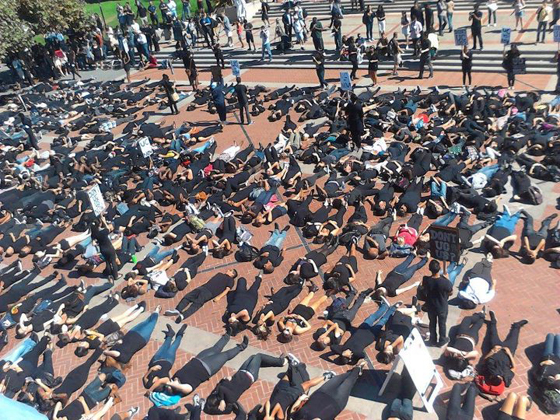Only in Berkeley does a bake sale incense the masses, spur yet another protest and garner national media attention. I've devoured dozens of cookies and cupcakes in my lifetime, but never before have they motivated me to discuss race, politics and education with my peers.

On Thursday evening, the Berkeley College Republicans (BCR) invited Facebook users to their "Increase Diversity" bake sale on Sproul. Their event is scheduled to occur simultaneously during campus efforts to support the passage of California legislative bills, including the controversial bill SB 185. SB 185, if signed by Governor Brown, would allow the UCs and CSUs to consider "race, gender, ethnicity, and national origin, along with other relevant factors, in undergraduate and graduate admissions."
Mocking the rhetoric of progressive movements, the event information called for attendees to provide "the OPPORTUNITY to increase DIVERSITY and student VOICES by buying some PASTRIES and helping redistribute wealth for SOCIAL JUSTICE through BAKED GOODS on Sproul Plaza (9/27/11)."
The Facebook invitation also featured differential pricing for their baked goods, based on race and gender:
- White/Caucasian: $2.00
- Asian/Asian american: $1.50
- Latino/Hispanic: $1.00
- Black/African American: $0.75
- Native American: $0.25
- $0.25 OFF FOR ALL WOMEN!
I don't know if I should be angry or hungry. Nevertheless, the bake sale reduces the historical and contemporary struggles that people of color and women face as we all seek access to education, employment -- a fair share of the figurative pie. The bake sale ridicules and mischaracterizes the need for diversity. This isn't about the promotion of "preferential treatment." It's about equal access to opportunities that people of color and women have been and continue to be systemically excluded from. The struggles of our communities deserve more consideration than just a "cutesy" cupcake protest.
While the bake sale invitation may have been offensive and distasteful, it did reaffirm and remind me why I support legislation like SB 185. Many of the most egregious laws approving racism and oppressive discrimination are no longer on the books, but negative racial sentiments still persist in more destructive and subtle ways. They take the form of institutionalized barriers.
What do these barriers look like? They take form in highly segregated, low-income communities of color, where local school districts have to teach more crowded classrooms with less funding, where schools are unable and oftentimes unwilling to offer courses to ensure that their students fulfill the A-G requirements, and where schools hire teachers without the proper teaching credentials.
Prop 209, an anti-affirmative-action ballot initiative passed in 1996, illustrates this institutionalized racism disguised as a "colorblind" policy. A year after the passage of Prop 209, the freshman class of 1998 at UC Berkeley saw a 50-percent decrease in black, Latino and Filipino students compared to the year before, according to the American Bar Association. Such a "colorblind policy" eliminated the ability to consider external factors impacting students from disadvantaged backgrounds and how they have had to struggle to get to where they are and where they want to go. Public universities are supposed to educate the people of California, but we see that only a select few are making it into higher education.
Moreover, attempts to ensure the representation of underrepresented students does not "lower academic standards," nor does it require a quota system. The share of college-bound, high school students of color graduating each year has increased, but they are being turned away because of budget cuts that limit overall student admissions. As the implementation of the new 2012 admissions policy nears, I can only fear that more students who look like me will be denied an education.
This is why we need legislation like SB 185 to pass. SB 185 is about accessibility, opportunity and progress. It is intended to ensure that all our communities will be able to attain the education required to meet the economic demands of tomorrow. It is about taking into consideration the current and projected demographic changes in California, as well as the expansion and growing demands of our state economy. Without an educated and diverse workforce, California will not be able to meet the demands of tomorrow's economy. As is, California is projected to experience a supply shortage of approximately 1 million college-educated workers by 2025 if current admission and graduation trends continue. SB 185 is a step in the right direction for California.
If there is anything to be learned from this unfortunate incident, it is that more remains to be done in the realm of realizing a more accepting and truly diverse campus. But how do we move forward from here? Such incidents call for the administration to recognize, as they have, that there is progress to made to ensure equal access to the university system. And as students, we must continue to hold for ourselves and the UC accountable to its stated Principles of Community: "a campus and a world free of discrimination, intolerance, and hate."